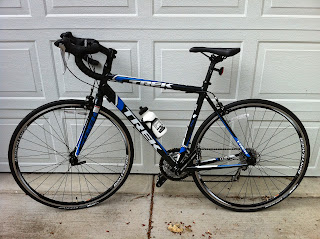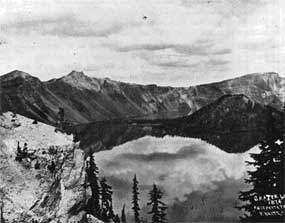1. Hippies (originals and wannabes).
2. Microbrews and wine.
3. Duck Football (University of Oregon for those of you living under a college football rock).
4. The Arts.
5. Biking. Everywhere. Everyday. Rain or shine.One of my favorites that I've picked up here is biking. Cycling to be precise. Thanks to the state of Oregon and its lack of sales tax, I purchased my first road bike. I wrote about it briefly in an earlier post.
 |
| 2011 Trek Lexa S. |
...{Enter Collin's Cycle Shop}...
There are a plethora of bike shops in Eugene. Save your time and energy trekking (pun totally intended) across town and go to Collin's. They have the perfect mix of customer service, experienced and knowledgeable mechanics and a well-stocked showroom (see above).
They just kicked off their Basic Bike Maintenance & Repair class and I was lucky enough to be one of the inaugural students. While this is by no means an exhaustive review, I'm going to share my two cents regarding the class. Here's the breakdown:
Where: Collin's Cycle Shop, 60 E. 11th St.
When: Saturday 5-30-7pm; Sunday 10am-noon (bi-monthly through the end of the year).
Who: Deireck Ritter (Collin's Mechanic) and up to five other students.
How Much: $50 - a GREAT deal for the undivided attention, use of shop tools and a gift bag full of repair necessities (extra tube, tire levers, patch kit, chain lube and a Collin's bike bottle).
What to Bring: Your bike and enthusiasm.
 |
| Deireck. Full of witty banter and encyclopedic knowledge on all things bike. Playing around with a (we hope) promotional jersey. Either that or someone made a bike that defies the laws of physics. |
DAY 1: Saturday (5:30-7pm)
- Safety Basics: Went over the basics of a general safety check before you head out on a ride. I felt pretty good about the fact that I knew most of them (brakes, tires, wheels, bolts, etc.)
- Tires: Spent the majority of the class going over how to change a flat (and secure a quick patch). The greatest aspect of this was changing the tire more than once- you are encouraged to keep practicing until you feel confident. Also, Deireck gave us already damaged tubes to determine the flat cause. THIS WAS EXTREMELY BENEFICIAL. You're learning first-hand and retaining a large amount of information.
- Brakes: I learned that properly adjusted brakes should feel crisp and stop approximately two finger widths from the front of your drop bar to the brake handle (phew I hope that made some sort of sense). I also learned that I am a complete perfectionist when it comes to brakes. Which is totally a good thing.
- Derailleurs. Ohhhh derailleurs, they are tricky little beasts. Rear derailleurs are much less complicated than front derailleurs. An infinitesimally small adjustment can make your bike run more efficiently, or it can seriously compromise the integrity of your chain and overall gear system. That said, it was really great to see how such a tiny adjustment can fix a major problem. Moral of the story: know how your gears work and be smart about shifting.
If you're new to road biking or want to brush up on your skills, give Collin's a call: 541.342.4878.
*The words and opinion of the class are my own. No compensation was received for this review.






